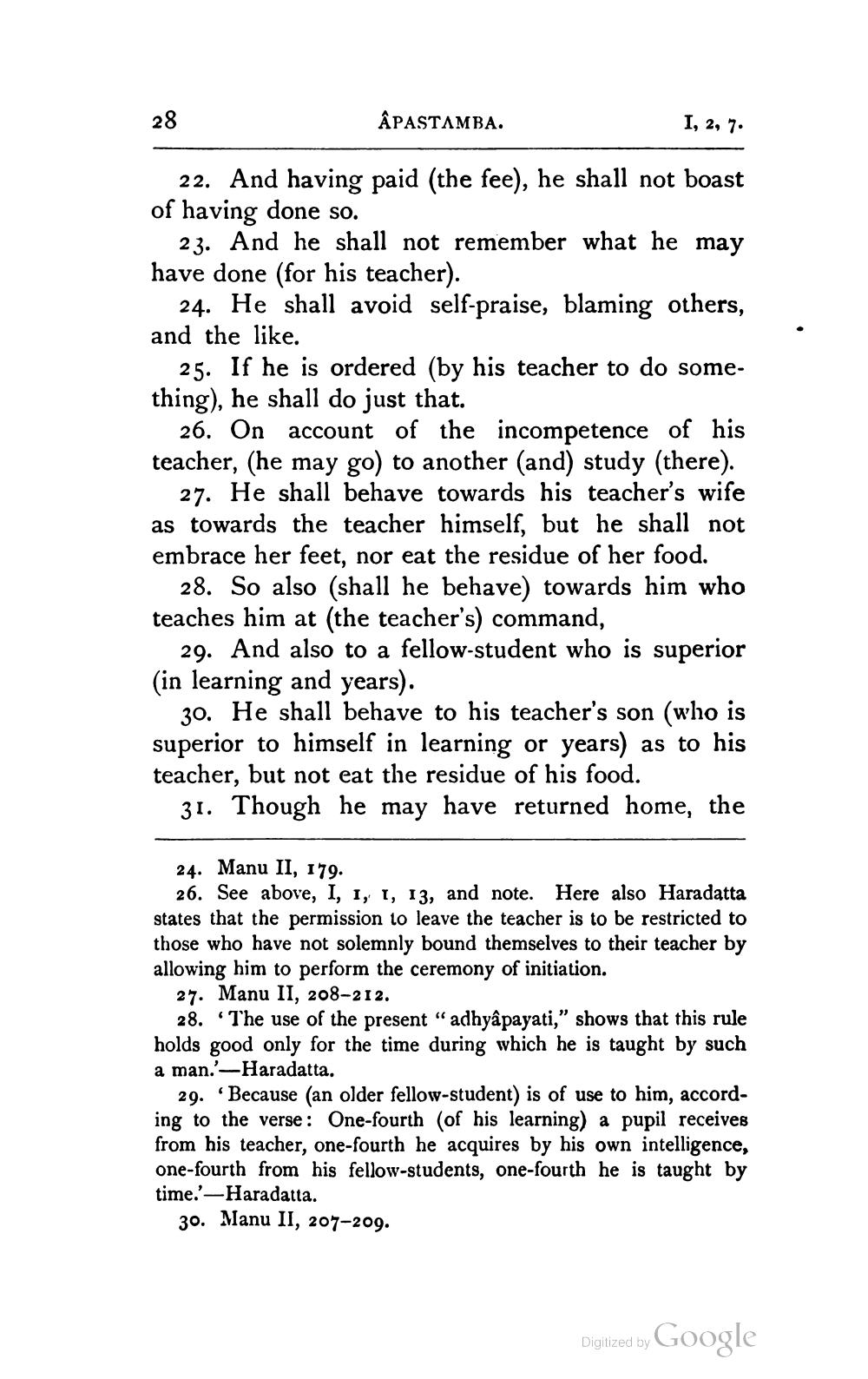________________
28
ÂPASTAMBA.
1, 2, 7.
22. And having paid (the fee), he shall not boast of having done so.
23. And he shall not remember what he may have done (for his teacher).
24. He shall avoid self-praise, blaming others, and the like.
25. If he is ordered (by his teacher to do something), he shall do just that.
26. On account of the incompetence of his teacher, (he may go) to another (and) study (there).
27. He shall behave towards his teacher's wife as towards the teacher himself, but he shall not embrace her feet, nor eat the residue of her food.
28. So also (shall he behave) towards him who teaches him at (the teacher's) command,
29. And also to a fellow-student who is superior (in learning and years).
30. He shall behave to his teacher's son (who is superior to himself in learning or years) as to his teacher, but not eat the residue of his food.
31. Though he may have returned home, the
24. Manu II, 179.
26. See above, I, I, I, 13, and note. Here also Haradatta states that the permission to leave the teacher is to be restricted to those who have not solemnly bound themselves to their teacher by allowing him to perform the ceremony of initiation.
27. Manu II, 208-212.
28. The use of the present "adhyâpayati," shows that this rule holds good only for the time during which he is taught by such a man.'-Haradatta.
29. Because (an older fellow-student) is of use to him, according to the verse: One-fourth (of his learning) a pupil receives from his teacher, one-fourth he acquires by his own intelligence, one-fourth from his fellow-students, one-fourth he is taught by time.'-Haradatta.
30. Manu II, 207–209.
Digitized by Google




